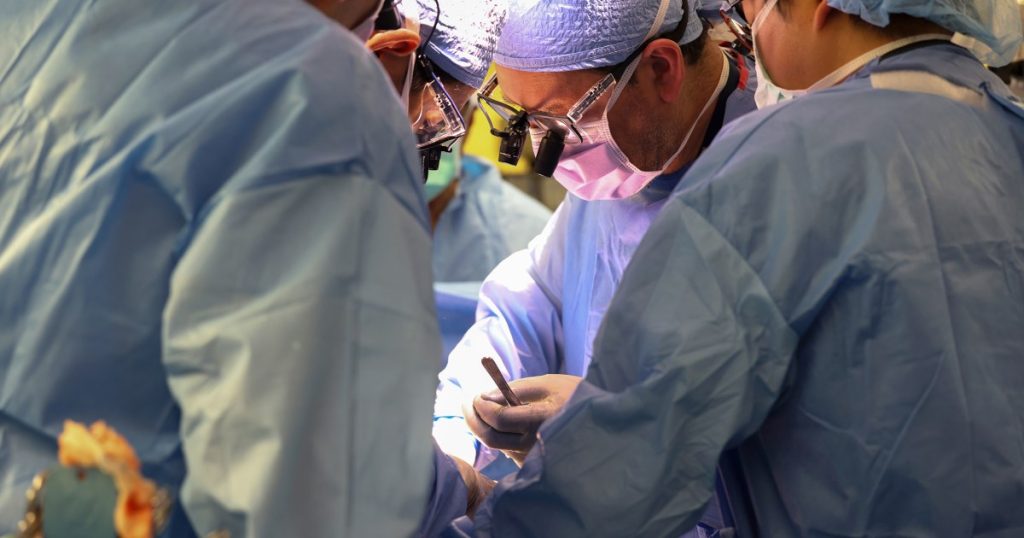Richard “Rick” Slayman, the first recipient of a genetically modified pig kidney transplant, has passed away nearly two months after undergoing the procedure at Massachusetts General Hospital at the age of 62. Surgeons had believed that the pig kidney would last for at least two years. Slayman had previously received a kidney transplant in 2018 but had to go back on dialysis last year due to signs of failure. When dialysis complications arose, his doctors suggested a pig kidney transplant, which he agreed to.
The transplant team at Massachusetts General Hospital expressed deep sadness at Slayman’s passing and offered condolences to his family, although they stated that they did not have any indication that he died as a result of the transplant. Slayman’s family, in turn, thanked his doctors for their efforts leading to the xenotransplant, which gave them seven more weeks with Rick. They mentioned that Slayman underwent the surgery in part to provide hope for the thousands of people in need of a transplant to survive, and that his hope and optimism would endure forever.
Prior to Slayman’s procedure, pig kidneys had only been temporarily transplanted into brain-dead donors. Two other men had received heart transplants from pigs, but both had unfortunately died within months. Xenotransplantation, the process of using cells, tissues, or organs from animals to heal human patients, has historically failed due to the immediate immune system response to foreign animal tissue. Recent advancements have involved genetically modifying pigs so that their organs are more humanlike, with the hope of improving the success rate of such transplants in the future.
The pioneering procedure performed on Slayman was a significant step forward in xenotransplantation research, providing valuable insights and hope for the future of organ transplants. While Slayman’s passing is a tragic outcome, his willingness to participate in this groundbreaking medical procedure has contributed to the progress of medical science and has given hope to others in need of life-saving transplants. The loss of Slayman highlights the risks and challenges involved in such experimental procedures, but also underscores the importance of continued research and innovation in the field of organ transplantation.
The passing of Slayman sheds light on the complexities and potential risks involved in xenotransplantation, while also highlighting the bravery and selflessness of individuals who participate in groundbreaking medical procedures in the hopes of advancing scientific knowledge and saving lives. The support and dedication of medical professionals, researchers, and patients alike are crucial in driving forward progress in the field of organ transplantation, offering hope to those in need of life-saving treatments. Despite the challenges and setbacks faced, the legacy of individuals like Slayman will live on in the continued pursuit of innovative solutions to complex medical issues.


